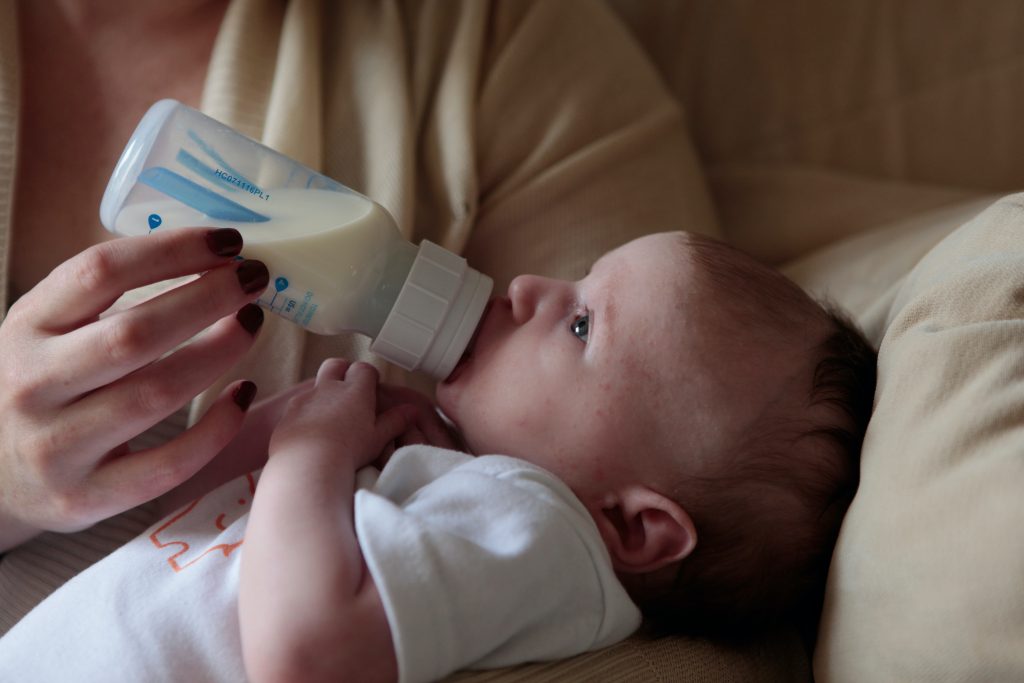All fields are required
Posted in Our Blog on September 19, 2023

The United States Food and Drug Administration (FDA) issued an alert to parents and caregivers of infants who consume infant formula of a voluntary recall for LittleOak infant formula sold online because it is being sold in the United States illegally. Despite being deferred in 2022 during the baby formula shortages, the product was still available for purchase online in the US. Here is what we know about this LittleOak Brand Infant Formula Recall:
The FDA has strict requirements for baby formula products that are designed with health, safety, and nutritional needs in mind. The FDA advises that parents and caregivers of infants and babies only feed approved formulas.
The recalled products include an infant formula as well as a baby formula.
These products were sold online through the company’s webpage and shipped to the United States illegally.
The reason for recall? The company did not follow appropriate approval process to sell infant formula in the US. LittleOak did not submit the required premarket notification, allowing the FDA the opportunity to review key information such as ingredients, key nutritional information, manufacturing information, and other key details.
During the infant formula shortages in 2022 when the major US manufacturers were issuing massive recalls due to safety issues and outbreaks related to production facilities, the United States allowed certain manufacturers temporary permission to import infant formula to alleviate the strain on American parents and caregivers.
This temporary approval still called for oversight. The FDA expedited the approval process, allowing the FDA to quickly review these manufacturers’ ingredients, key nutritional information, and all of the other activities performed in US manufactured products.
LittleOak did not pass the test.
In 2022, the LittleOak Company requested enforcement discretion to allow them to sell the infant formula in the United States on a temporary basis, as did many other foreign brands. The FDA denied the brand, in part due to preparation instructions and certain ingredients not evaluated by the agency. Because of this, the FDA did not believe that these issues could be resolved quickly to meet the country’s needs, and ultimately the company was not issued permission to sell LittleOak infant formulas in the United States.
Prior to selling in the United States, the firm did not re-issue a premarket notification and request for review to sell in the US. It is not clear if any of these issues have been resolved or if the firm was simply allowing the direct public to purchase the product without FDA oversight.
The product was sold until September 9, 2023, when the firm issued a voluntary recall after being discovered illegally in commerce in the United States by the FDA. Products currently in circulation may still have the pre-existing violations.
According to the Health Alert, when the product was first reviewed by the FDA, there were two ingredients in the infant formulas that were novel to the FDA’s current infant formula regulations. These two ingredients had not been evaluated by the FDA to determine if they were safe to use in infant formula.
This does not mean that the ingredients are automatically unsafe, however, infant formula is highly regulated due to the vulnerability of the target consumer – infants.
The other issue barring the product for sale in the United States was the preparation instruction included on the label. According to the Health Alert, the preparation instructions “do not align with measurements commonly displayed on infant formula bottles in the U.S.” The alert cites potential challenges to caregivers that could affect their ability to properly mix appropriate concentrations of formula.
This could lead to several errors with dire consequences, including diluting the formula or over-concentrating the formula.
Diluting the formula can lead to inadequate nutrition. This can cause growth delay and other health concerns due to malnutrition.
Over-concentrating the formula can lead to dehydration and electrolyte imbalance. This can cause kidney issues among other health concerns.
These non-standard preparation instructions may require caregivers to use other ways of measuring the infant formula, such as measuring cups or spoons. This is not recommended, as it can introduce harmful contaminants to the product.
If consumers are seeking this product because they are looking for goat milk infant formulas, the FDA has a list of approved brands that are currently being marketed under the FDA’s enforcement discretion policy and currently allowed to be sold in the United States.
Click here for a complete list.
While the FDA does not “approve” infant formula products, these manufacturers are required to follow a strict adherence to standard requirements. If these requirements are not met, the formula may be deemed adulterated, misbranded, or both. This allows the FDA to take enforcement action with federal law granting the FDA to require a mandatory recall “if the agency determines that an adulterated or misbranded infant formula presents a risk to human health.”
Some of the FDA requirements include:
Many caregivers may have unknowingly purchased this unapproved product, unaware of its restrictions to commerce in the United States. While the FDA is not currently aware of any associated illness or complaints against LittleOak products sold illegally in the United States, it is still unsafe to feed an infant.
If an infant in your care has been sickened or impacted by this LittleOak Brand Infant Formula Recall, it is important to report this to appropriate agencies. Foodborne illness, growth delays, and dehydration are serious in infants. Seeking advice from a trusted Food Poisoning lawyer such as The Lange Law Firm, PLLC is an important step in getting answers.
If you’d like to know more, check out the Make Food Safe Blog. We regularly update trending topics, foodborne infections in the news, recalls, and more! Stay tuned for quality information to help keep your family safe, while The Lange Law Firm, PLLC strives to Make Food Safe!
by: Heather Van Tassell